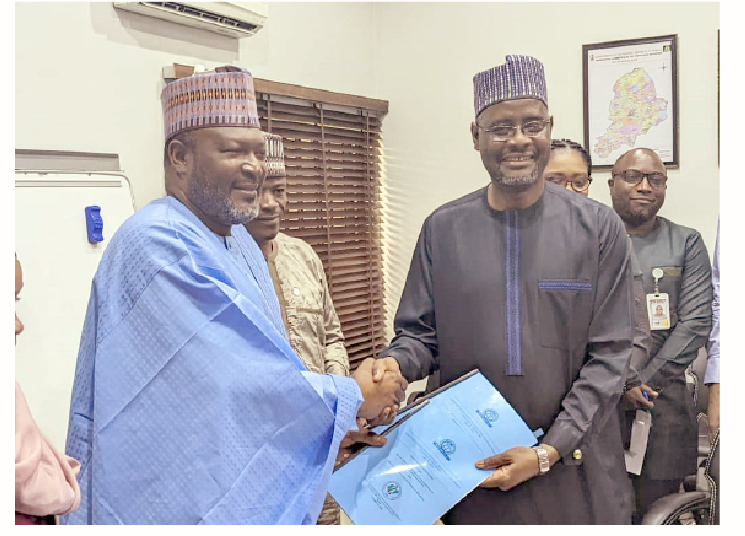Healthcare delivery in Nigeria is both a private and government business. The federal and state governments are allowed to set up hospitals and other health facilities. However, effective healthcare delivery is usually a function of the quality, accessibility, and affordability of the service.
Nevertheless, for the northeast region most especially Borno, Adamawa, and Yobe states there is an urgent need to rev up support for the internally displaced person (IDPs) as populations in need of healthcare services, especially women and children, are either underserved or suffer from avoidable and treatable health conditions.
Statistics also show that the northeastern states have the worst indices of maternal and child health in Nigeria. Endemic malaria still accounts for more than 50 per cent of mortality and morbidity among children with acute respiratory tract infection, watery diarrhea, and severe acute malnutrition as leading causes of illness.
As part of post-insurgency development efforts via the World Bank assisted project – the Multi-sector Crisis Recovery Project of the North East Development Commission (NEDC) and National Agency for Control of AIDS (NACA) have signed a Memorandum of Understanding to conduct a Rapid Baseline Need Assessment in the health sector in the Borno, Adamawa and Yobe states.
The assessment which will be implemented by NACA will help provide much needed information on specific health indices to provide context and evidence as well as guide the basis for planned health interventions.
The MoU signing ceremony which was held in Abuja had in attendance the national coordinator for the NEDC-NERSP, Dr Mohammed Danjuma, and the director general, NACA, Dr Gambo Aliyu who signed on behalf of their organisation, in the project scheduled to commence immediately.
A Needs Assessment study helps to identify needs and informs on how to intervene through project design to bridge the gap between a current and desired state.
The national coordinator for the NEDC-NERSP, Dr Danjuma the Needs Assessment will help to review the health issues facing the states, leading to agreed priorities and resource allocation that will improve health and reduce inequalities amongst the populace.
Danjuma noted that NACA as a government agency has the requisite experience to conduct the assessment while the NEDC-NERSP is in charge of recovery efforts in Borno, Adamawa, and Yobe States in terms of health, education, infrastructure development, and improving the livelihood of the populace.
“We are collaborating with NACA in terms of assessment. The assessment of these three states will help to identify peculiar diseases in the three states that have been ravaged by the insurgency,” he said.
In terms of giving succour to the people, he said the assessment will help in better targeting resources for health-related issues in the states.
He said, “You can observe that there are peculiar diseases in the same areas. For instance, why is kidney failure prevalent in Yobe and Borno? How are we going to better channel our resources to tackle these health issues? And for areas with existing health centres, how will we make them more functional in terms of providing health care services for Internally displaced persons (IDPs)?”
He said the goal of NEDC-NERSP is to ensure that its resources are judiciously used to make life more meaningful for the people.
On assurance to the people in terms of health care delivery, he said, “The commitment of the commission is to build on what is on the ground and improve on them. We are resolute to identify new areas in the terms of health care that are lagging and provide improved services within the available resources channeled towards it.”
He reiterated that the project is not all about building infrastructure, but ensuring that there are drugs and personnel.
He added that the priority of the programme is that the yearnings of the people are addressed.
“We don’t want a situation where people may need water yet you are building schools, that is a misplaced priority, and that is what we are trying to avoid. We are determined to give them what they need,” he said.
On the need to focus on building hospitals in key areas instead of building hospitals across all communities with limited impact, he said, “health care delivery in existing hospitals will be improved.”
He said every ward will have a primary health care centre across the 112 local governments in the entire northeast, adding that it will help to cater for minor ailments.
“Our target is to see how we can make them functional. There are existing primary health care centres, state government health centres, and federal health care centres. All these hospitals collaborate to provide effective healthcare delivery.
He further said not only insurgency has caused displacement in the region, adding that the number goes up and down.
“We will continue to ensure that the health sector in the northeast is remodeled. This will also be achieved by ensuring that our supporters are impactful and we believe that this support will indeed return the lost fortune of the people of the region,” he said.
On his part, Aliyu assured that the project will be delivered in line with international best practices.











